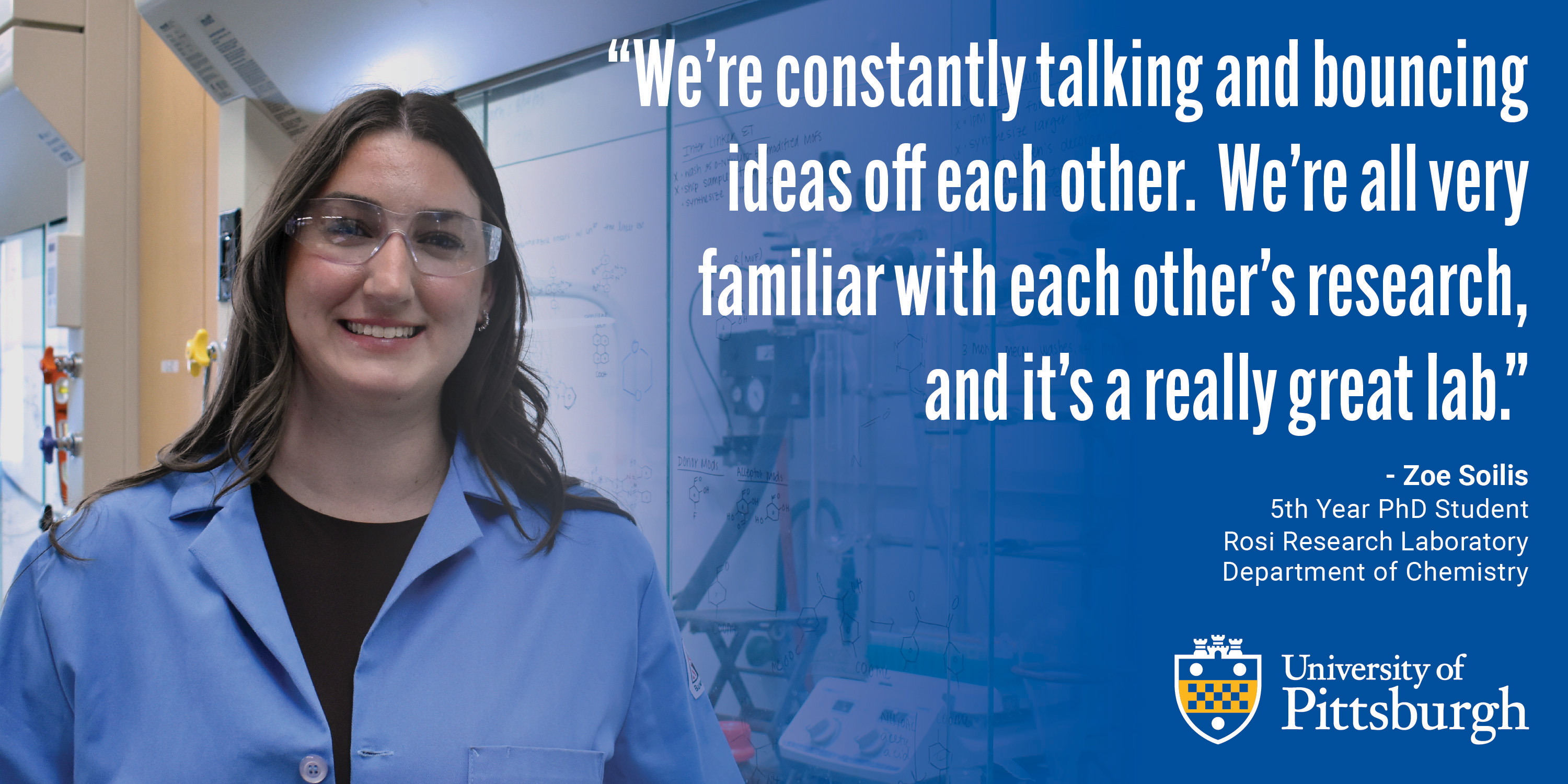
Zoe Soilis is a fifth year PhD student in Nat Rosi’s lab researching the photophysical properties of MOFs in the context of studying energy transfer in different MOF architectures.
When Zoe Soilis started her PhD at Pitt in 2020, she didn’t think she would end up working on metal organic frameworks.
“My undergraduate research was in nanoparticles, but I had no idea what MOFs were,” Soilis says. “During rotations my first year, Nat [Rosi] asked me if I knew much about MOFs, and when I learned about them, I thought they were super interesting.”
Now a 5th year graduate student in the Rosi Lab, Soilis investigates what controls the photophysical properties of metal-organic frameworks. MOFs are crystalline materials made of organic linkers and metal nodes, and have applications in drug delivery, catalysis, gas storage, and sensing. In her research, Soilis works on tailoring MOF architecture to change their photophysical prosperities such as their colors, absorbance, and emission spectra.
Soilis has found a real home in Rosi’s lab, which she attributes to her amazing group members and the collaborative environment that is fostered in the lab.
“I feel like with my lab mates, we’re constantly talking and bouncing ideas off each other,” Soilis says. “So, we’re all very familiar with each other’s research, and it’s a really great lab.”
Soilis has gravitated toward inorganic chemistry from the moment she took her first inorganic chemistry class, so it's no surprise that she ended up doing inorganic research — except maybe to her high school self.
“I wanted to use my degree to work for a skincare or cosmetics company,” Soilis says. “I don’t want to do that anymore, but that is what got me into the chemistry major. And then I really loved my inorganic class as an undergrad. That was probably my favorite class, I just felt it clicked for me.”
Inspired by the professors she had as an undergraduate at Allegheny College, Soilis plans to pursue a career in undergraduate teaching after she finishes her PhD.
“I would say the best moment teaching would be when I taught CHEM 0100 and would be working one on one with a student reviewing concepts or practice problems and it would finally click for them,” Soilis says. “There's something validating knowing you helped them get to the answer and to understand the concepts.”
Soilis, a Pittsburgh native, applied to graduate school’s in 2020. As a student at Allegheny College, about an hour north of Pittsburgh, she chose Pitt in part because she didn’t want to move very far during the COVID-19 pandemic.
“I got extremely scared about moving across the country during the pandemic, and I felt that there had to be something at Pitt that I [would like] once I got there and started talking to the professors,” Soilis says. “Honestly, it was one of the best choices I made personally and research wise.”

